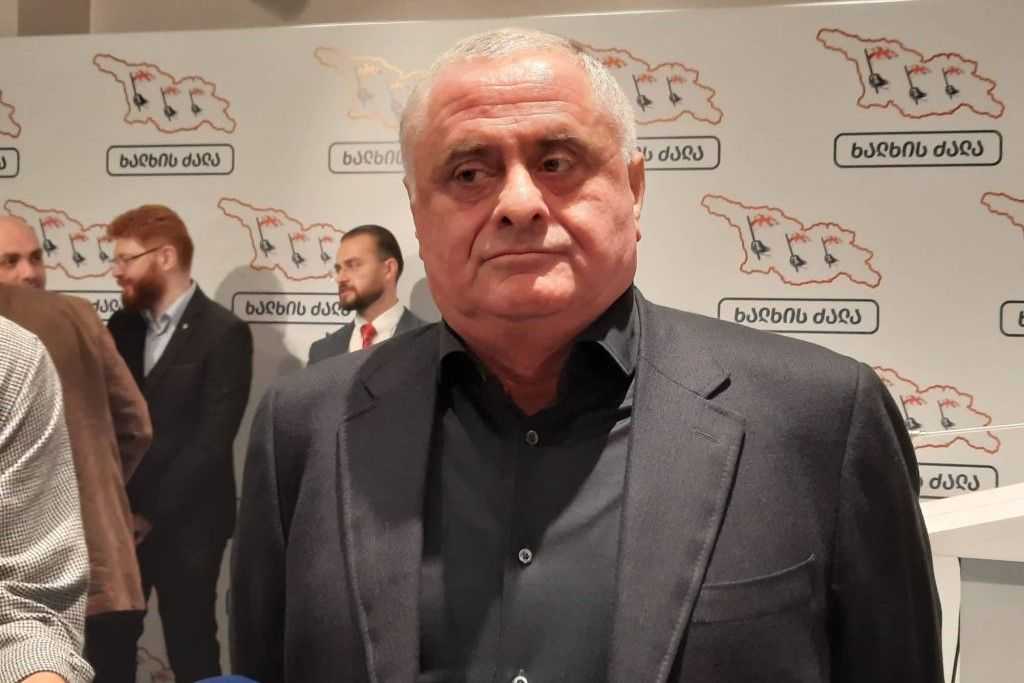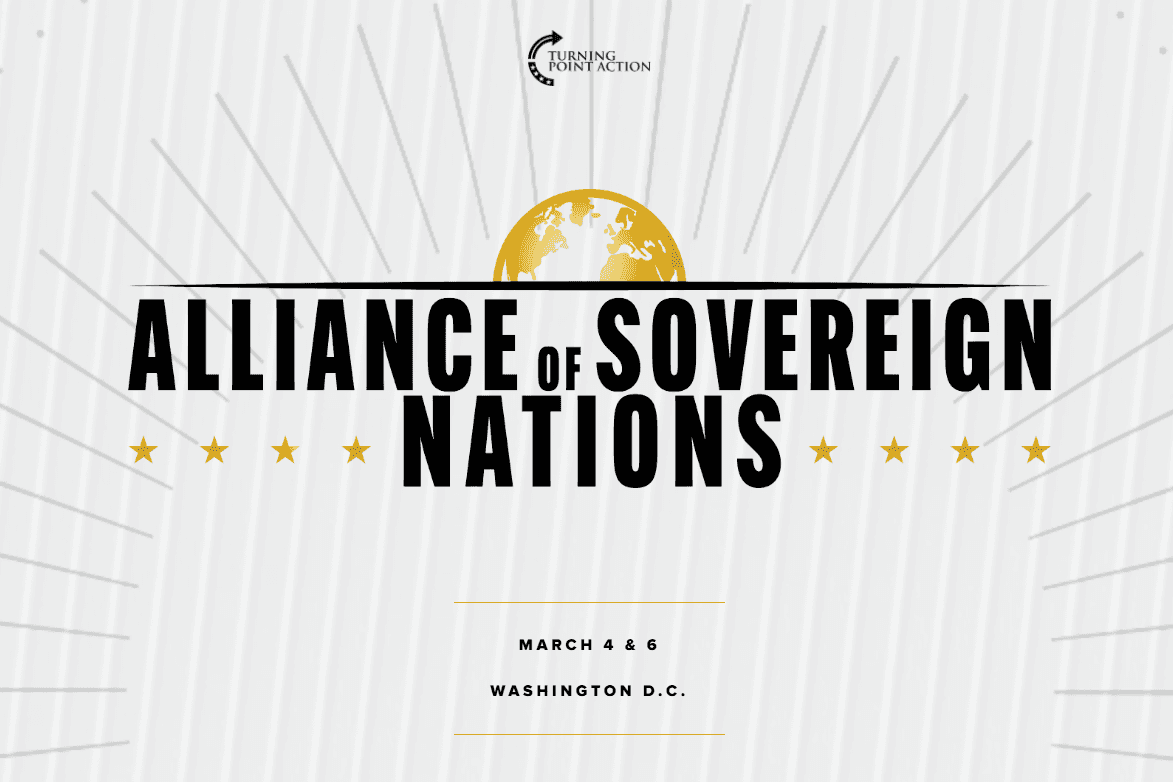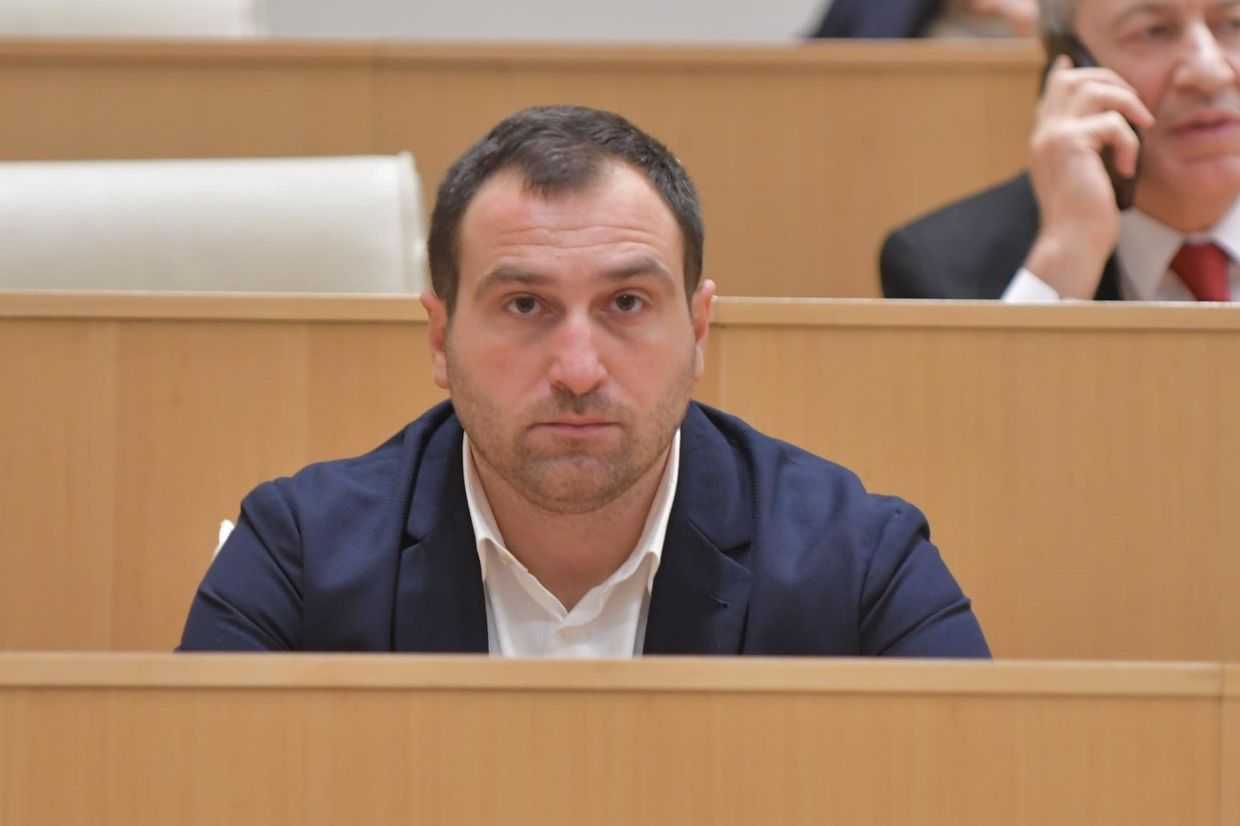
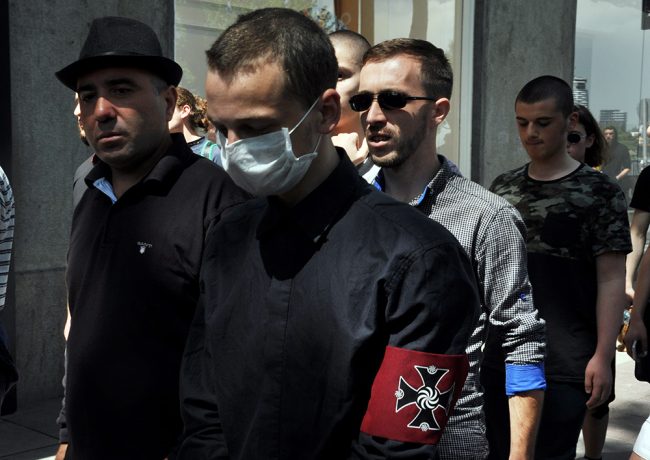
 Georgia’s State Security Service has warned a neo-Nazi group to abstain from using Nazi symbols in public. Small groups of neo-Nazis marched through Tbilisi several times last week, including on 17 May, International Day Against Homophobia, giving Nazi salutes and chanting ‘death to the enemy’.
Georgia’s State Security Service has warned a neo-Nazi group to abstain from using Nazi symbols in public. Small groups of neo-Nazis marched through Tbilisi several times last week, including on 17 May, International Day Against Homophobia, giving Nazi salutes and chanting ‘death to the enemy’.
The State Security Service issued the warning to the Nationalist Socialist Movement — National Unity of Georgia on 18 May.
According to the Liberty Charter, adopted in 2011, it is prohibited to publicly display communist or fascist symbols. Similar restrictions on propagating fascism were in place during Soviet rule, and Georgia still officially commemorates Victory Over Fascism Day on 9 May.
On 16 May, the Ministry of Internal Affairs confirmed to OC Media that it had already started investigating potential threatening statements made by National Unity of Georgia on 13 May against participants of a rally against a police raid on nightclubs. Members of the group were also summoned to a police station on 17 May.
[Read on OC Media: Interior minister apologises over Tbilisi nightclub raids as far-right groups plan daily protests]
‘Radicalisation is the biggest problem’, said Interior Minister Giorgi Gakharia before parliament on 18 May. Referring to recent confrontations between protesters and counter-protesters in Tbilisi, he argued that police should not start dispersing counter-rallies ‘for the interests of the other party’.
Gakharia also argued that despite reacting to acts of violence during recent counter-rallies with arrests and by opening investigations, Georgia’s current legislations is ‘not very effective [at] fighting against aggressive and fascist-leaning groups’. The minister promised to draft amendments to the law as soon as the authorities see it is necessary.
Opposition parties have criticised the government’s response to counter-rallies on 12–14 May. Irakli Kiknavelidze, spokesperson for the European Georgia party, said the authorities tolerate and encourage violence with their ‘inaction’. ‘We do not have direct evidence that [radical groups] are secretly guided by the authorities, but not punishing them leads us to come to such a conclusion’, Kiknavelidze told OC Media.
Giorgi Mshvenieradze, chairman of the Georgian Democracy Initiative, a legal advocacy group, argued that when radical groups go beyond nonviolent speech and pose a ‘direct, obvious, and substantial threat’ to others, ‘the response of law enforcement agencies are not fully adequate’. ‘In this country, all opinions have a right to exist, but no one has the right to resort to violence’, Mshvenieradze told OC Media.
Giorgi Gotsiridze from the Georgian Young Lawyers’ Association (GYLA) said that any speech not posing direct threat should be protected, but that if a radical group is found guilty of inciting violence based on ethnic, religious, or other motives prohibited by criminal law, the disbandment of the organisation could be called for in court. ‘This is a practical instrument against such groups and organisations’, Gotsiridze told OC Media.
Neo-Nazis — giving Nazi salutes and chanting ‘glory to Georgia’ along #Tbilisi‘s Rustaveli Avenue — say they will go Kashueti Church, opposite the parliament building, to pray. #Georgia #IDAHOT #IDAHOT2018 pic.twitter.com/9KLnNpo0RV
— OC Media (@OCMediaorg) May 17, 2018
Far-right ‘connections to Russia’
On 17 May, Transparency International Georgia published a study on Georgian ‘neo-Nazi’ groups and those against ‘liberal values’, analysing their ties between each other, the ruling Georgian Dream party, as well as with Russia. The study includes an overview of the March of Georgians, a leading group in the latest ultra-conservative mobilisation that confronted youth-dominated anti-government street protests.
According to the report, the March of Georgians has recently regrouped and expanded under the Consensus of National Powers. Transparency identified the alliances’ new face, Dimitri Lortkipanidze as evidence of their ties to Russia.
Lortkipanidze is a former MP from the United Democratic Movement party led by Nino Burjanadze, who has been critical of Georgia’s pro-Western foreign policy. He also recently became director of the Yevgeny Primakov Georgian–Russian Social Centre, which operates under the Moscow-based Alexander Gorchakov Public Diplomacy Fund. The fund has an explicit agenda of applying soft power outside Russia, offering several cultural and educational services in Georgia.
‘Anti-Western’ trends and their sources were the main focus of Tbilisi-based Media Development Foundation’s recent study of 17 media outlets in 2017. According to them, the Georgian media itself remains the main source of ‘anti-Western messages’. The report identified the United Democratic Movement and Alliance of Patriots parties as the main political actors, and the March of Georgians, People’s Assembly (affiliated with United Democratic Movement), and Eurasian Institute as other leading actors conveying anti-Western sentiments. ‘Georgian March [aka March of Georgians] was most aggressive against [American philanthropist and founder of Open Society Foundations] George Soros and NGOs financed by foreign countries’, says the report.
Forty arrests in 17 May counter-rallies
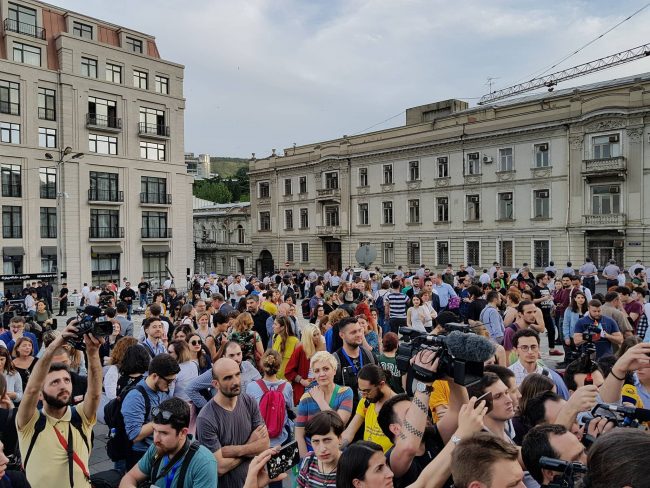
Several far-right groups mobilised on 17 May in response to spontaneous queer rights gatherings, despite activists decision to cancel a larger anti-homophobia rally. Police detained 40 people, including the leaders of the counter-rally. Despite a heavy police presence, one queer rights activist was attacked.
Activist Nika Gorgiladze was punched repeatedly in the face by a 15-year-old boy as he gave a speech about love in front of the Georgian Government’s chancellery building. His assailant was immediately detained by police as he attempted to flee the scene.
[Read more about how the 17 May gatherings in Tbilisi on OC Media: Queer rights activists hold ‘guerrilla IDAHOTB demonstrations’ in Tbilisi after far-right threats ]
Because he was under the age of 18, the attacker was released later that day, but the authorities confirmed he is still expected to face criminal charges, with a possible prison sentence of 1–3 years. According to Liberali, the Ministry of Internal Affairs has promised to investigate if the attack was a hate crime.
Except for the incident, the gathering ‘went peacefully overall’, said Londa Toloraia, Human Rights Protection Department head at the Ministry of Internal Affairs, who was personally monitoring the rally.



